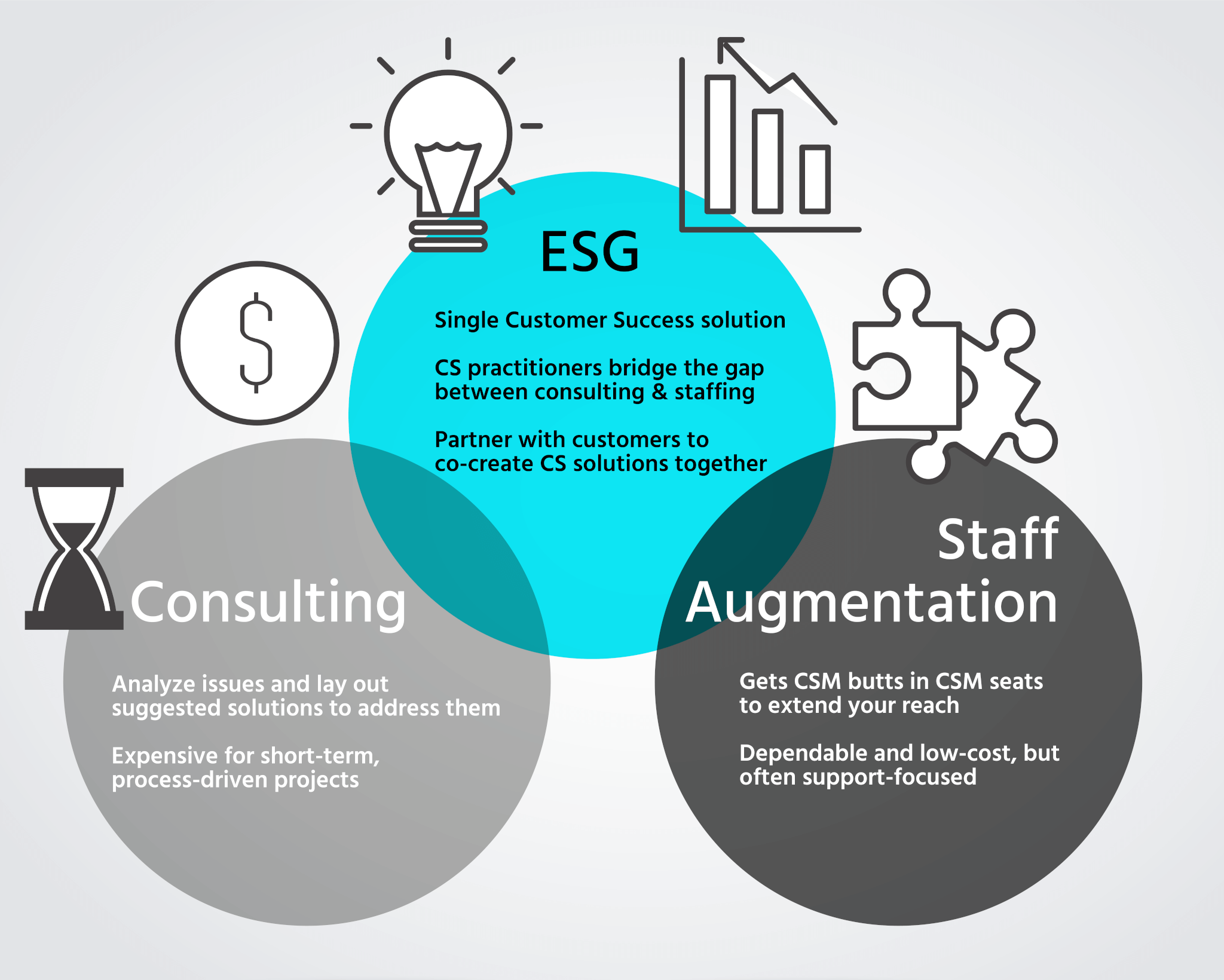We talk to Customer Success organizations at all phases of development, so we often get asked about the differences between hiring a consultant, a staffing agency, and ESG. Scaling Customer Success is a huge undertaking, no matter where you are in your journey to full Customer Success maturity. If you’re just starting out, hiring CSMs and hitting the ground running may be your challenge. If you’ve already built your organization and need to advance to the next phase, then revisiting your customer journey maps or discovering the right digital strategy might be your next hurdle. There are lots of benefits to working with an outside agency to help you get the job done, but it’s important to understand the differences between providers so that you end up with the best solution for your Customer Success needs.
Last year, the COVID-19 pandemic impacted Customer Success in countless ways. CS organizations were already beginning to take on additional revenue responsibilities, but the crisis accelerated this momentum. At the same time, uncertainty caused many businesses to seek avenues for “immediate cost savings and efficiencies,” according to TSIA’s State of Customer Success 2021 report. Now, nearly half of CS teams have advanced to own account expansion opportunities like renewals and upsell. 84% own customer adoption, and 76% of CS teams have taken on retention – all while businesses are looking for ways to streamline their spend.
The role of Customer Success has evolved as a significant driving force behind customer retention and growth, but businesses are seeking out the best solutions for scaling CS in the most cost-effective and efficient ways possible. This means more organizations will be looking to outsourcing agencies for staff augmentation and working with consultants to help develop an optimized CS strategy moving forward. In fact, nearly 54% of companies use third-party support teams to maintain their customer experience, and the global market value for outsourced customer experience is expected to increase to $81.5 billion by 2023.
As you assess the type of outside support that could help you expand upon your Customer Success approach, remember that each has its own particular advantages and disadvantages. From our years of experience in the thick of the rapidly burgeoning CS world, we’ve outlined the major pros and cons for each type of external agency.
Staff augmentation
What they do
You’ve already got a blueprint for Customer Success. You have a handle on onboarding new customers and have created in-depth customer journey maps. You know your customer health scores can accurately predict churn. You just need a dependable, low-cost solution to get CSM butts in CSM seats and extend your reach. This is where staff augmentation firms come into play.
Pros
- Staffing firms are often more affordable alternatives to hiring in-house.
- Teams can be brought up to speed quickly and fill in any gaps you have on your team.
- You don’t have to take on the task of searching for, interviewing, and hiring candidates, saving you valuable time and energy.
Cons
- A few employ teams within the U.S., but many hire offshore, leading to potential challenges with language or time zones.
- Customer Success Managers from these providers are of the plug-and-play variety. These agencies do not work with you to build out new CS strategy. They are unlikely to be partners in testing and refining new processes and procedures.
- There is a big difference between being a proactive Customer Success organization and being reactive to customer needs aka: support on steroids). You need to have a nuanced understanding of what CS is and what it isn’t. Staff augmentation is often geared toward customer support functionality, not more strategic CSM work.
Consultants
What they do
Consultants spend time with your organization to analyze any issues you’re having and to lay out the suggested solutions to address them. For Customer Success organizations, this means discovering where your CS gaps are and receiving a plan of attack to reach the next stage of CS maturity.
Pros
- They can provide guidance on specialized issues that you may not have the internal expertise to tackle.
- You get an outsider’s perspective on any problem areas you have that may result in better, outside-the-box solutions for your team.
- Consultants have the workforce to dig deep and analyze an issue from all angles.
Cons
- They can be expensive for short-term, process-driven discovery.
- They tend to be more focused on breaking out pieces of your process that aren’t working versus taking a holistic, organization-wide approach.
- The solutions are often one-and-done. Consultants could build a strategy for you that may work in the short term but doesn’t evolve with your needs over time and stops at the planning phase, without moving into execution.
Customer Success practitioners – the bridge between staffing and consulting

We built ESG to be a single Customer Success solution that bridges the gap between staff augmentation and consulting firms. We like to call ourselves Customer Success practitioners. This means that we partner with our customers to co-create CS solutions together. We start with an assessment of your current location on the Customer Success Maturity Model and talk through your goals for your CS organization’s future. But that’s only the beginning.
We work with you to engineer CS processes and procedures to fit your business, and then we test and deploy these solutions for you. This can look different depending on your needs. We can provide CSMs who identify and test new CS strategies with an incubation model. We can implement the tools you need to scale and build communication strategies for each of your customer segments. We can help you define and operationalize any step on the path of CS maturity.
When it comes to finding the right Customer Success strategy for your business, there is no one-size-fits-all solution. Every potential project is really just a hypothesis until it is deployed and tested, improved, and tested again. We actively learn through these deployments so your CS strategy can advance over time.
Because, at the end of the day, there is no final, ultimate state of Customer Success you can reach and be done. Your business is constantly growing; the market is always shifting under your feet. There is no final bell to ring, no finish line for Customer Success. Because it’s so dynamic, you need an iterative process of continuous improvement. And that is what ESG strives to achieve.

